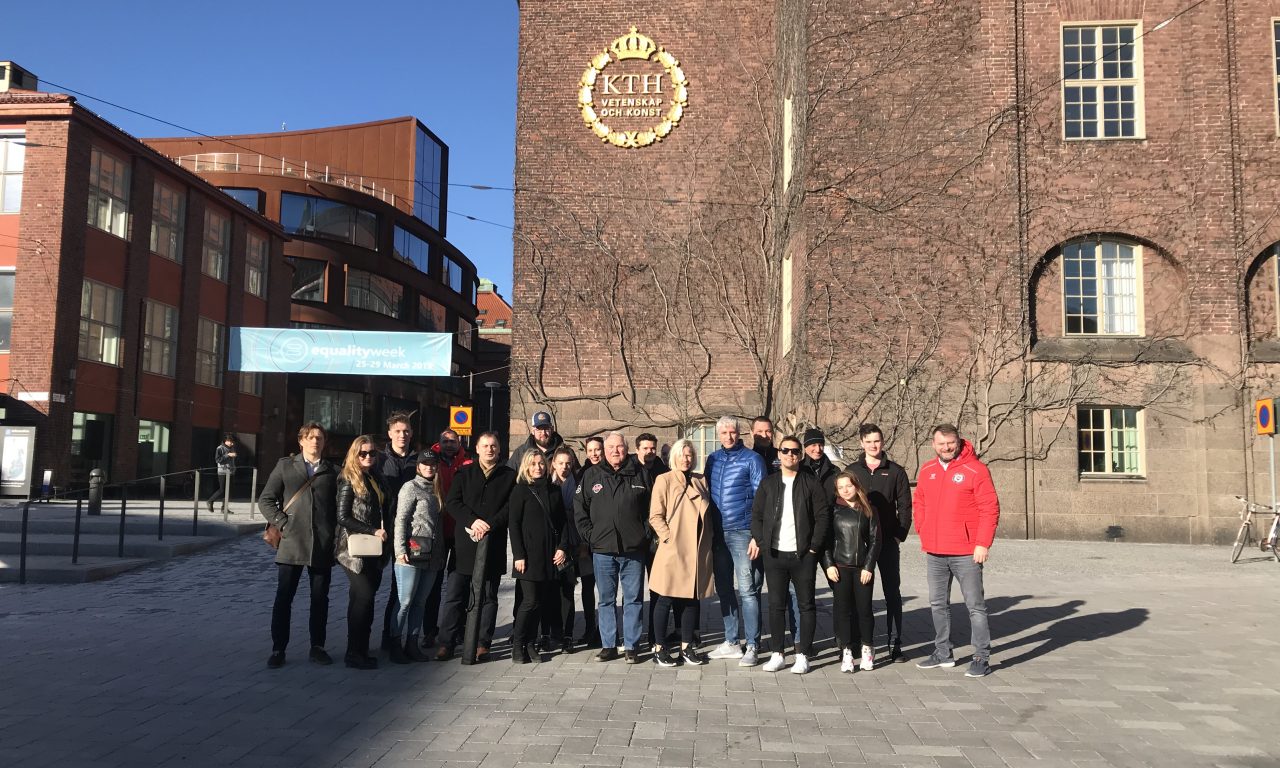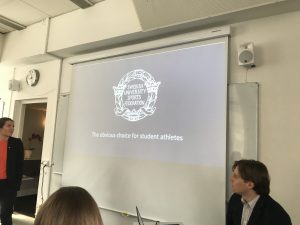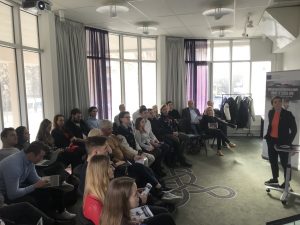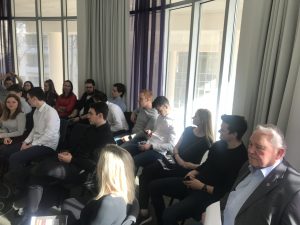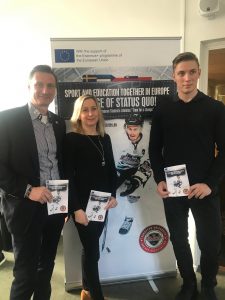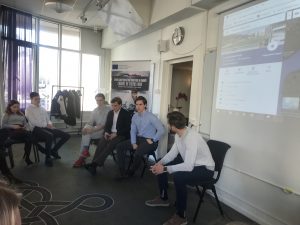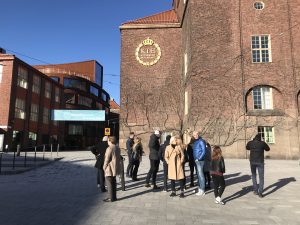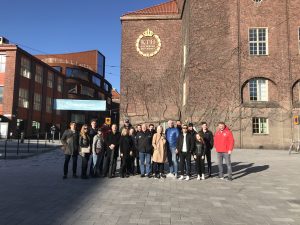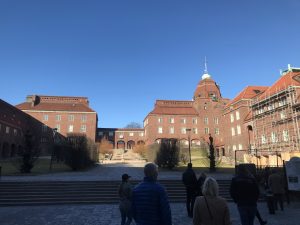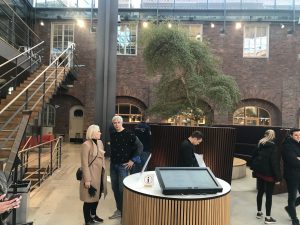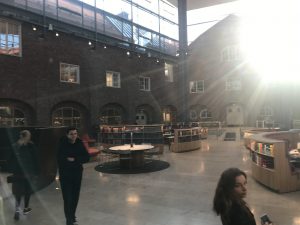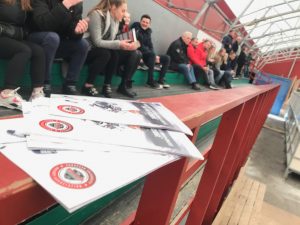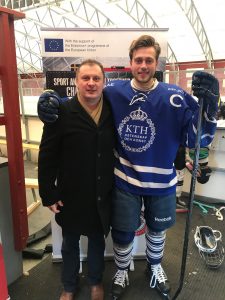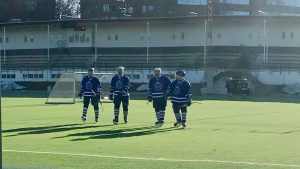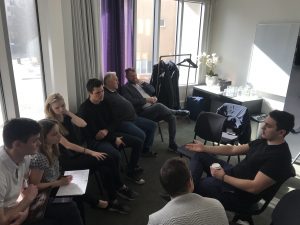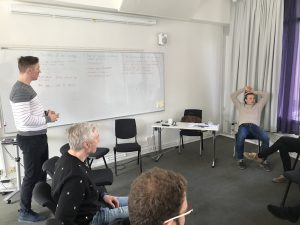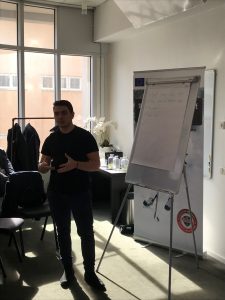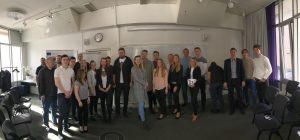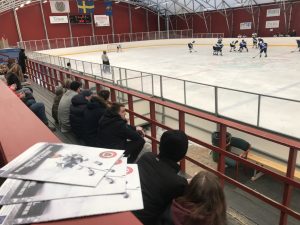Transnational Project Meeting
Building a strong partnership between Sport and University on a regular basis structure – Important basis for dual career opportunities
On March the 23rd and 24th an international conference was held in Stockholm, hosted by Kungliga Tekniska Högskolans Ishockeyförening. The conference took place at the Clarion Hotel Tapto, located next to the university and the city centre. The conference was held under the supports of the EU Erasmus+ Project, whose intention is to develop the dual career opportunities in European. The meeting included representatives from Sweden, Slovakia, Poland, Czech Republic and Estonia. Several of the participants are part of universities from the European University Hockey League, those teams were; Univerzita Karlova, Klub Absolventov, Cavaliers Brno Z.S., Unievrzita Mateja Bela V Banskej Bystrici, Wyższa Szkoła Biznesu National-Louis University w Nowym Sączu, VSK Technika Praha, Akademics Pilsen.
The transnational project had one big purpose; To increase the awareness of dual career opportunities in Europe. In addition to that goal the conference also had the purpose to; Help the Swedish University Hockey League to develop and Highlight challenges and opportunities for university ice-hockey in Europe. Throughout the two days, the meeting had different topics that as a result created the purpose of the meeting. The program had several different speakers, in total 4, and some other guest speakers from KTH. All of whom had something unique to present in relation to the dual career. The presenter explained how the university sport is structured in Sweden and how a dual career can contribute to the future for students, not only in regard to sports but also professionally and workwise. On topic pervading amongst all presenters where how beneficial the combination with education and studies are, how you not only become a better sportsman but also becomes a better student and develop a relationship with students all over the university.
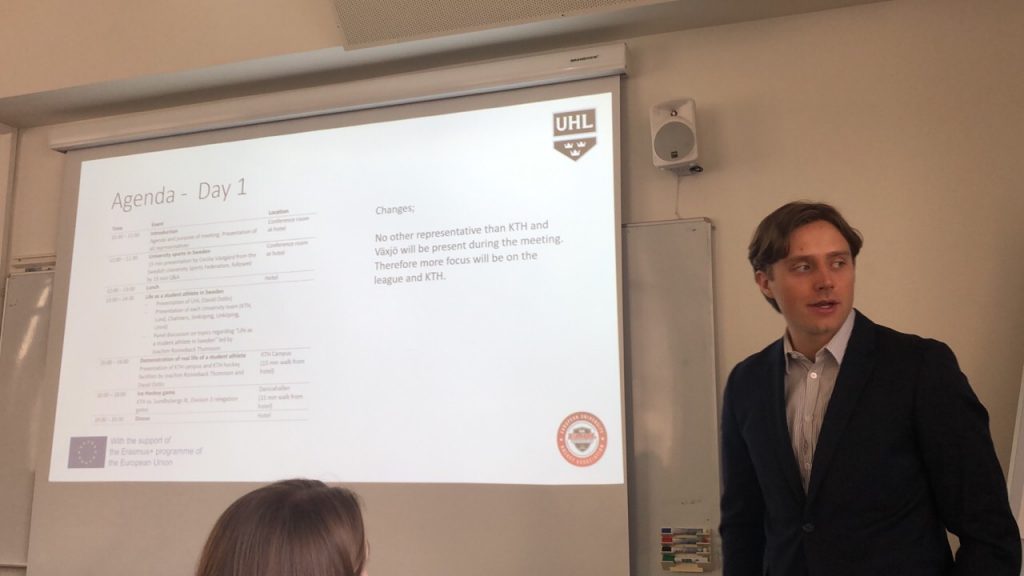
The conference began with the speaker David Östlin, Chairman of the board for KTH Hockey and President of the Swedish University Hockey league (UHL). During this speech, David explained the purpose of the meeting, the agenda and introduced all the representatives for each other. David has been the president of the league over two years and has been part of KTH Hockey for four years now. After the introduction speech, David introduced the next speaker, Cecilia Västgård. Cecilia is the competition manager at SAIF, Swedish university sports federation. She has a great deal of experience with university sports and have attended several Universiade’s over the years and as well have been responsible for hosting international university tournaments. Cecilia explained the structure of University sports in Sweden, both the organisational structure but as well what kind of role SAIF has in all the bureaucracy. She talked as well about dual career opportunities in Sweden and explained their strategy to introduce and capture more student to do dual careers. In addition, she explained what role and relationship they have with the European University Sports Association. After the speech by Cecilia, it was time for lunch at the hotel. Please find the presentation here
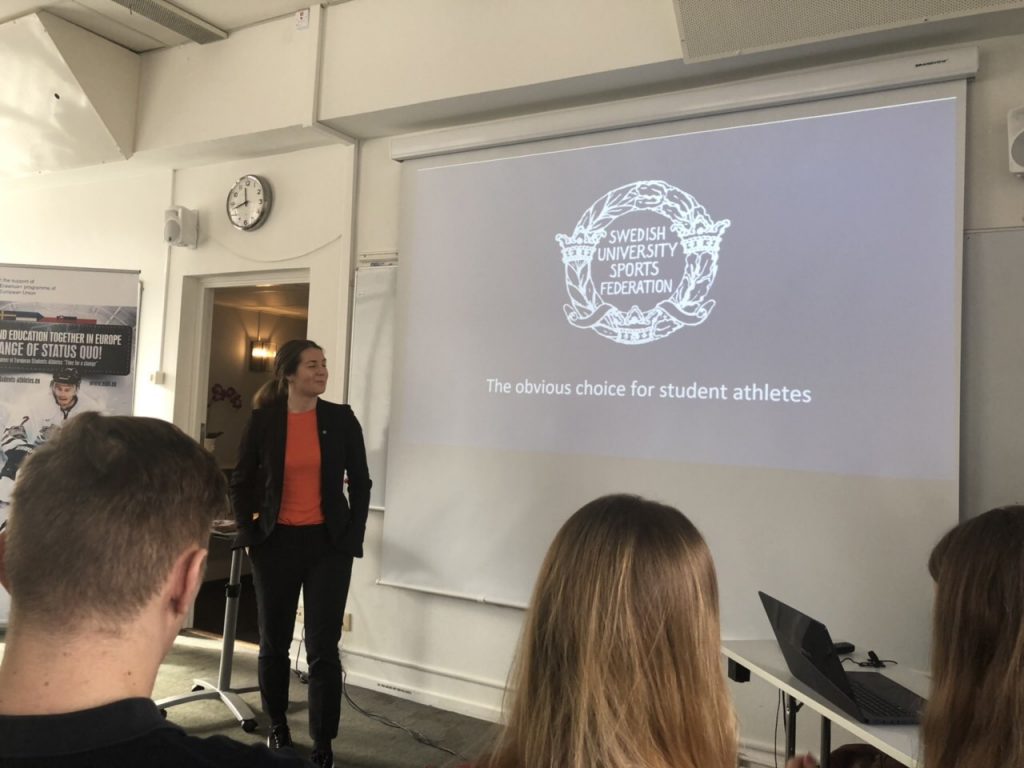
The second big block of the conference was “Life as a student athlete in Sweden”. This part was held by Joachim Ronneback Thomsson and David Östlin. First, David presented the Swedish university hockey league. He explained where all the universities are located, how the structure of the league is created with him as a league president and under him a team representative from each team. Thereafter he explained the current challenging’s and opportunities with controlling the league, for instance how the communication between and the distance can complicate games and schedules. Lastly, he explained how the future of the UHL could look like and how the Swedish league should be connected with EUHL. Please find the presentation here
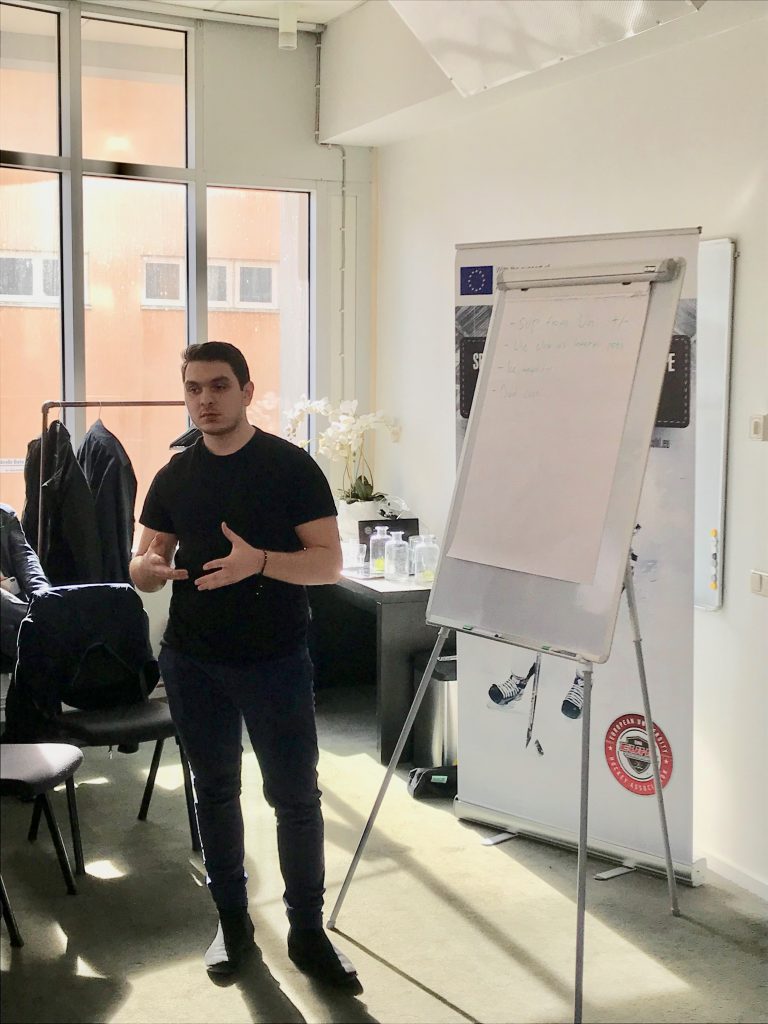
Presentation of starting university team in Växjö, Linnaeus university. Why and where could students - athletes make dream come through by Arseny Lysenko. Please find the presentation here
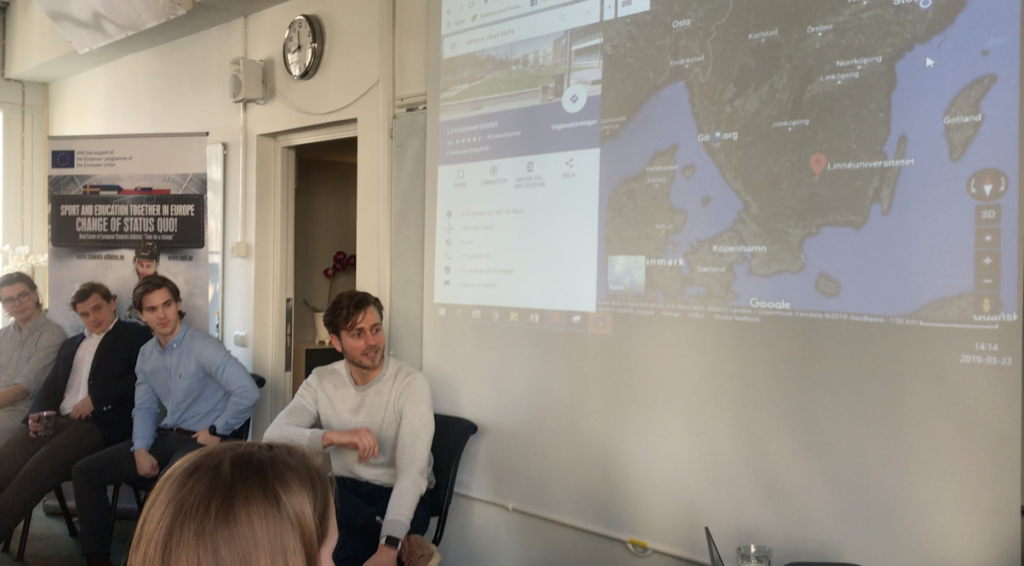
The second part of this block was held by Joachim Ronneback Thomson, founder of both the Swedish University hockey league and KTH Hockey, today he has his own company and during his university studies, he won several awards defining him as a successful student entrepreneur. Joachim talked held the panel discussion; “Life as a student athlete in Sweden”. The panel consisted of three KTH students, Rasmus, Magnus and Andreas, that plays and is active board members in KTH Hockey. The discussion highlighted all the benefits that just being part of the team has given them. They explained how the KTH Hockey in comparison to other hockey teams understands players that need to study. The also discussed how their participation with managerial tasks have developed them and given them skills they will be able to apply in future professions. They also highlighted the importance to develop university sports in general and university hockey in particular to increase awareness of the benefits and to be able to attract future players. Please find the presentation here
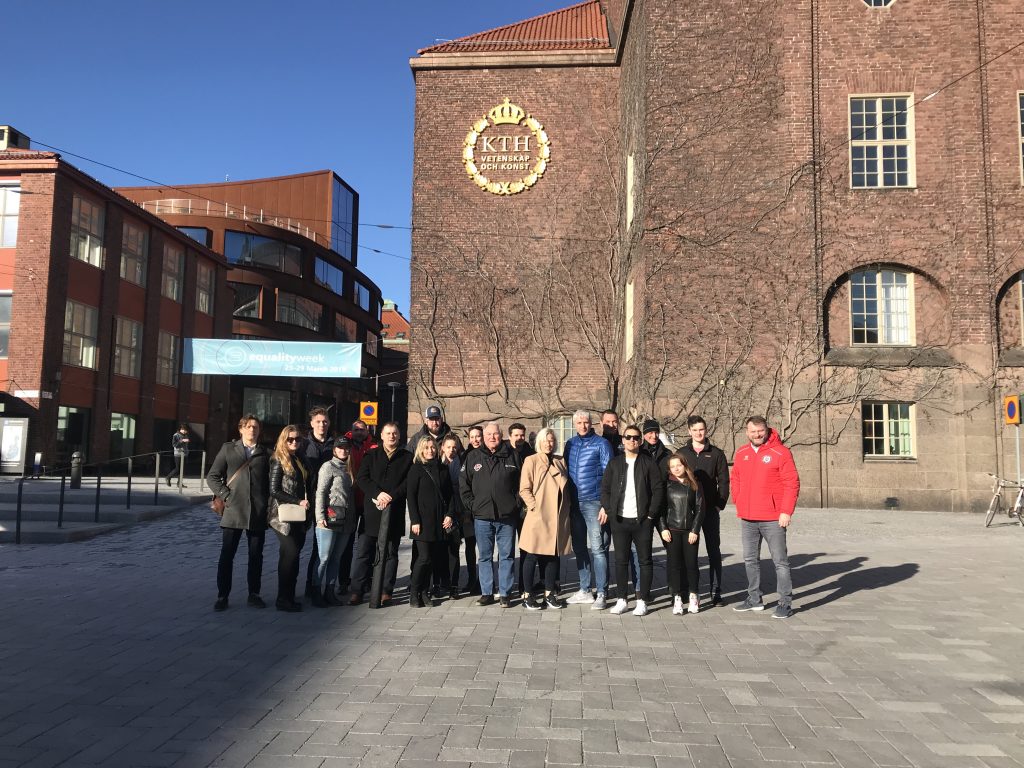
The next part of the agenda was a demonstration of how real life as a student athlete in Sweden is like. David took the group and walked to the KTH campus, showed where most student study. Then the group continued to the sports stadium where KTH Hockey practice and play its games. They got a short visit in the looker room and then later the group got the opportunity to enjoy the multiplayer sport even in friendly game where KTH Hockey played against Sundbybergs IK. After the game, everyone had fruitful discussion dinner together at the hotel.
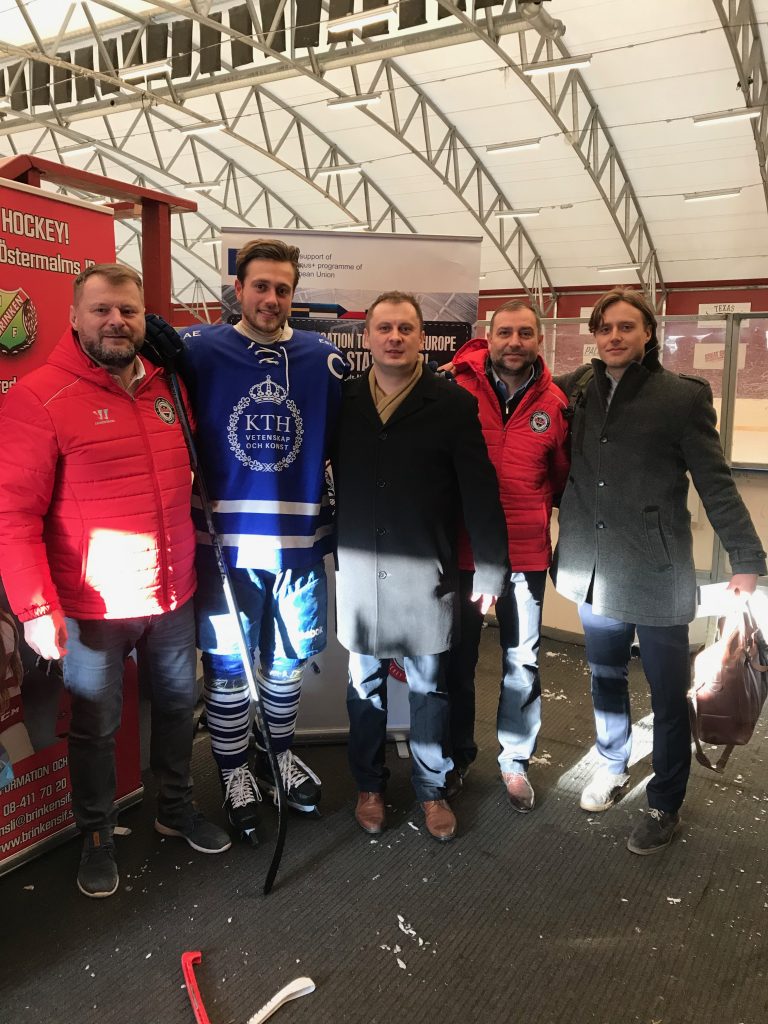
The second day of the conference started with networking breakfast, discussion relevant topics in a rather casual way, created good bonding between the different nationalities. After the breakfast, David summarized day one and everyone in the room had the opportunity to highlight and question anything from the day before. What was rather concrete was the many differences between university sports in Sweden and in the other countries, but that was highlighted was as well how different the university system, in general, is different. For instance, university studies in Sweden are subsidies by the government and students actually get funding to study, that is not the case for students from Slovakia, Poland, Czech Republic and Estonia. The discussion continued divided into three different topics and tables; - Table 1: Benefits of dual career for students-athletes, Table 2: How can the university support and attract the best student-athletes (flexible schedules, scholarships…), Table 3: How can the university benefit from dual career in studies and sports (e.g. attraction of talents…). After approximately one hour of discussion, all participants wrapped up their topics to conclusions and presented them for the rest. After that everyone had lunch and that was the last part of the conference.
The presentations, discussions and the conference as a whole executed the purpose of the meeting, to increase the awareness of dual career opportunities in Europe. What was constant throughout the speeches was how beneficial the combination of sports and university studies are, and how both help students to find friends, develop their sports skills and as well improve their studies. Everyone agreed that university sports should be bigger and more integrated into university in Sweden. We wish to se a big development in Europe of the opportunity to a dual career. We will continue to do our best to develop Swedish university sports and be part of the development in Europe. We are thankful for getting the opportunity to host this conference and proud we were able to organize a successful conference with happy participants.
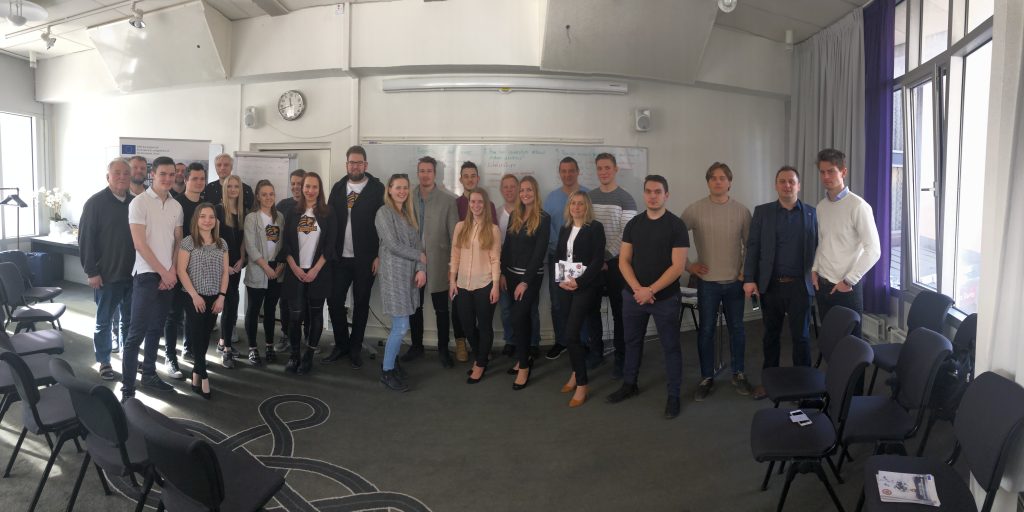
Discussion tables – KTH Stockholm
Summary:
Benefits of dual career for students-athletes (benefits)
- Active and effective cooperation between school and club (better student check
- mutual advertising school and club
- approving individual curricula for students athletes
- enabling you to get a college degree during an active career in younger
- provide opportunities for the optimal choice of continuing education - qualifications
- Better application on the labor market
- Possibility of self-realization even after the end of a sports career
- In the event of an unexpected termination of a sports career (injury), the student has Athlete Exercising - Filling Leisure
How can university support and attract the best student-athletes (flexible schedules, scholarships)
- Approving individual curricula
- Granting scholarships
- Material and technical assistance for students by the school
- In the case of the existence of university sports clubs, LIGA - an option cooperate as coaches, assistants, managers, or upon completion
- Professional careers can be devoted to lower-professional sports level
How can the university benefit from dual career in studies and sports (e.g.attraction of talents.)
- Good school advertising
- Students athletes identify themselves by belonging to the school in the media (Interviews)
- advertising on jerseys, outfits
- Acquisition of new students from fellow sportsmen "school reputation"
- school has better opportunities to apply for and receive financial support, grants from projects of ministries, governmental, non-governmental other organizations at
promoting sport in schools - dialogue between parents of athletes students with other parents professional athletes - the arrival of new students
- Creating partnerships for the future - graduate cooperation schools with school management - to support and develop the school
- Schools focusing on sport can get new educated teachers from graduates (athletes)
